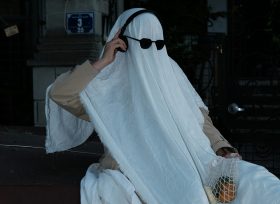England: a nation of rainy days and expensive restaurants – is it any wonder that
television drama thrives in this country?
Having long reigned supreme at producing dramas and serials – long running serials
like ITV’s Coronation Street and The Bill and the BBC’s Eastenders and Casualty, through to high quality short run series – England continues
to produce large volumes of drama for consumption here and overseas.
Renowned of course for strong traditions in literature it is perhaps unsurprising that
producers, directors and networks consider the script absolutely central to every
production. Much like their US counterparts, British productions depend heavily on the
script and invest time and significant development funds into ensuring the script is
solid before launching into production.
Key to this process is the script editor, and it seems that this role is a much
sought-after one within the industry. Numerous production houses around the UK attest
to receiving dozens of CVs from experienced and aspiring script editors looking for
work on a daily basis. Charlotte Jones, a producer at the new indie production house
Westred Pictures, says that their most frequent recruitment related calls come from
those looking for script editorships. Would-be editors often offer their services in a
trainee capacity or as script readers – writing reports on scripts production houses
have received from external writers.
Jones is clear as to why there is such demand for the role. “I think its the perceived
creative element of editing – working with writers, producers, directors, that appeals
to most would-be editors. Unlike production office jobs, you work closely with writers
but your own role is more stable – once you’re employed, you don’t have to constantly
be hunting for work. Best of both worlds, perhaps.”
Independent production companies typically employ a team of script editors and tie
them either to a series in production, or a number of projects in development.
Unfortunately, there doesn’t appear to be a standard formula for getting through the
door. Jones suggests it’s a combination of luck, talent, hard work and who you may
know.
One such editor to make it through the door is Polly Buckle, a script editor at
Elizabeth Murdoch’s indie production house, Shine. Polly has worked on a number of series, including the
supernatural thriller HEX for Sky and the recent drama, Sinchronicity,
produced for BBC 3. Currently, Polly works with a team of writers and Shine executive
producers across a wide variety of projects.
Having completed an honours degree in political science, Polly began her career as a
commercial development trainee at Carlton. One of her placements during her
traineeship was as a story researcher on the drama series, Crossroads. It was
here that she made her move into the script department. That move was in fact to
Eastenders, where she worked for a year as an assistant script editor.
While frequently frowned upon as a serial rather than high-end drama, series like
Eastenders employ large writing teams and act as a training ground for editors
like Polly, Jones believes. “Editors on long running serials like that end up so well
trained because of the sheer vol
ume of what they have to get through. A credit like
that on your CV does tend to open other doors.”
Competition, Polly says, tends to motivate an editor. “There’s plenty of people that
want to do it, and there aren’t that many jobs – you’re always aware your role is
sought-after.”
So does the daily reality of the job match its allure?
A typical day for an editor like Polly involves working closely with writers:
researching, reading the scripts and making structural and dialogue notes. And, like
all other businesses, not even editors can escape the constant struggle to find and
create new work. “We actually spend a lot of our time scouting for writers, reading
scripts from new writers to see if we’d like to work with them and develop their
ideas.”
Polly says the real creativity for the editor comes at the very start of a project. “I
often have to sit with the writer and a blank white board coming up with characters
and stories.” And are there drawbacks? “Yes,” Polly says. “My least favourite thing is
giving writers notes they don’t want to hear.”
While not writing significant sections of the scripts themselves, it seems that the
level editors work at – so closely with key creatives – provides enough of a challenge
to keep talented editors like Polly firmly ensconced in their roles for a number of
years.
So is the natural progression from there to writing? Sometimes, Polly says. In long
running series like The Bill, teams of script editors are overseen typically by
two or three Story Editors, who devise storylines for episodes and oversee character
arcs and journeys throughout a series. “Script editors tend to either become producers
or writers themselves. But most often they become producers.”
It seems then, that a script editor needs a full rucksack of skills. Jones believes an
editor needs to be something of an allrounder. “They need to be sharp-eyed,
analytical. They need to be creative and fast – production deadlines are insane. And
they need to be diplomats. Dealing with sensitive writers or directors or even
producers is a real skill.”
With the strong grounding editors gain in storytelling, production and development and
the competition from those waiting at the gates, coupled with the public’s hunger for
more, it seems likely that British drama will continue to thrive for some time.




